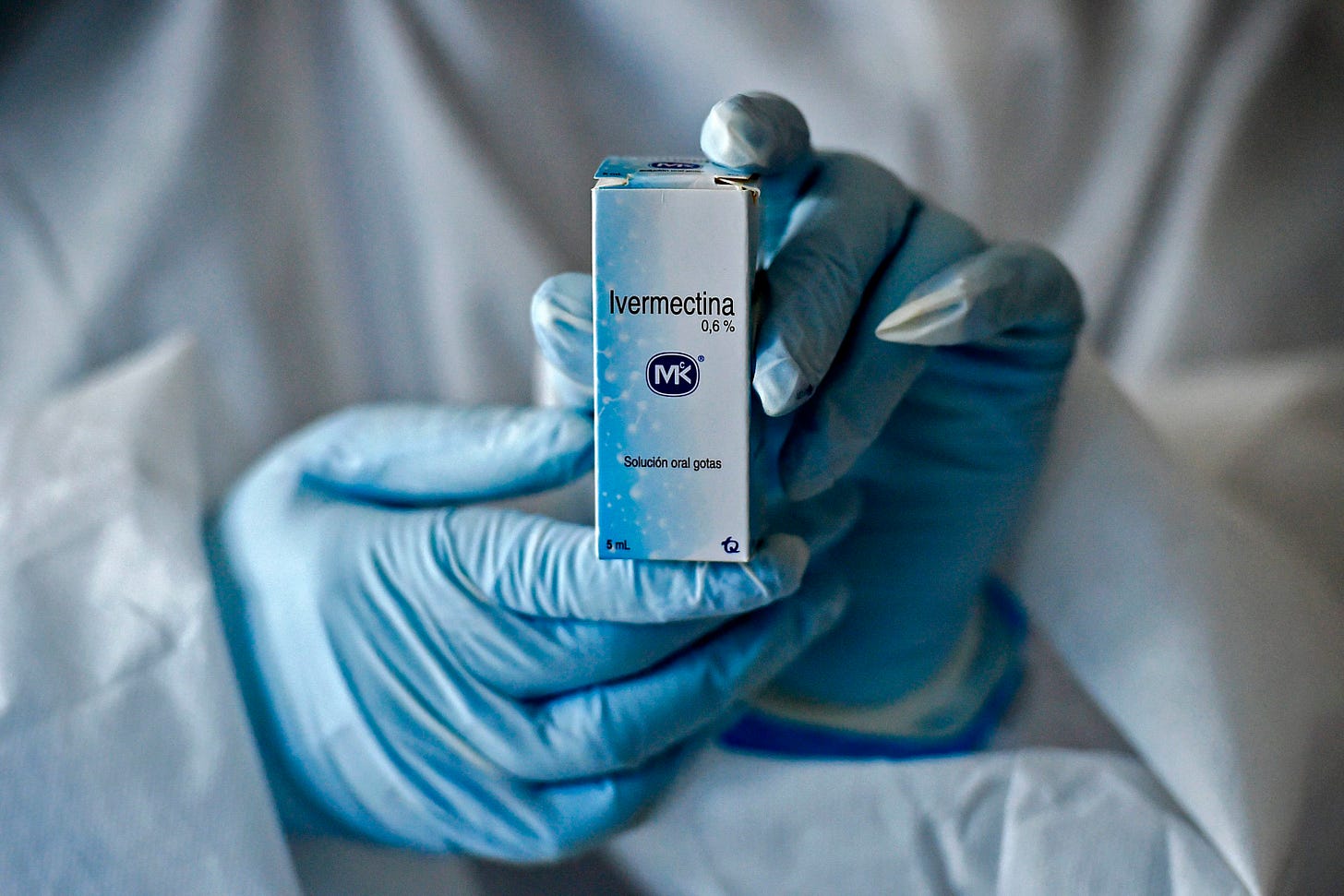
Ivermectin Shows Us the Consequences of Politicized Science
Ivermectin is the new hydroxychloroquine.

A contingent of Americans has embraced the anti-parasite drug ivermectin as a miracle cure for COVID-19 despite warnings from the American scientific community that little to no evidence exists of its efficacy.
At the same time, many Americans have rejected the COVID-19 vaccines in spite of enormous evidence supporting their efficacy.
The persistent trust in ivermectin and hesitancy to take a widely-proven vaccine is a logical consequence of rejecting American institutions, and a consequence exacerbated by those who have politicized science.
How did ivermectin become the new hydroxychloroquine?
Last November, Egyptian scientists published a study suggesting that ivermectin, an antiparasitic drug used to prevent heartworm in dogs and river blindness in humans, was supposedly effective in reducing COVID-19 mortality by 90 percent.The study attracted substantial interest from physicians and scientists around the world who were starving for solutions to the COVID crisis. The study has been cited as an argument to treat “thousands, or perhaps even millions” of people around the world with ivermectin. It was even cited in Congressional testimony about the need to fast-track widespread distribution of this so-called “miracle drug” for COVID-19.
Unfortunately, ivermectin is not a miracle cure. At best, the Egyptian study was poorly performed and partially plagiarized; at worst, the data were outright fraudulent. The study had faced substantial criticism since its release, and was recently retracted by the preprint website where it was published. Subsequent meta-analyses that partially relied on the data in the original study have also come under intense scrutiny. While ivermectin’s side-effects are (thankfully) mild, minimal evidence supports its use over any random medication in your home medicine cabinet in the fight against COVID-19.
This bears repeating: even in hospitals that have used ivermectin as a last-ditch attempt to help COVID-19 victims, there is little to no peer-reviewed data supporting its use.
Even the pharmaceutical company that manufactures ivermectin states that there is “no meaningful evidence for clinical activity or clinical efficacy in patients with COVID-19 disease” in studies assessing ivermectin’s effectiveness.
What we do have are case reports, small series, and even some small trials of ivermectin being given to patients who later recovered from COVID-19. But these reports are far from the high level of evidence that would be needed to prove ivermectin’s efficacy against COVID-19. In India, a country previously thought to have saved millions of lives through the use of ivermectin, more recent studies suggest a fatality rate among the worst in the world. In medicine as in life, we must remember post hoc ergo propter hoc: anecdotes of patients recovering post-ivermectin treatment do not prove ivermectin caused their recovery.
From a management perspective, the global system of biomedical science (long dominated by American institutions) has done what it is supposed to by assessing and rejecting findings that did not meet the high academic standards for publication. The ivermectin paper was released on a pre-print server prior to careful review by expert scientists, but was never accepted for publication in a peer-reviewed medical journal because so many questions were raised about its data, analysis, and even text.
Pre-prints can and do play an important role in accelerating the dissemination of new research. But pre-prints are far from fully published peer-reviewed papers in scientific journals. Our academic system’s process of disseminating scientific knowledge is one based on peer review. The peer-review process is not always perfect. It can be slower than we would sometimes like. But it balances the need to spread findings fast with the need to only embrace and act on reliable findings.
Despite this generally accepted commitment to the process of peer review, a subset of American physicians and politicians took the Egyptian pre-print and ran with it. They endorsed ivermectin in front of Congress, on cable news shows, and in viral social media posts.
We have seen this behavior before from irresponsible actors creating conspiracies about “big science” covering up the wonders of a supposed miracle drug. Playing into anti-vaccine fears, some went as far as to argue “there shouldn't be vaccines that we’re administering” if ivermectin was so safe and effective.
The words of these “experts” have caused substantial harm by contributing to our current “pandemic of the unvaccinated.” They have re-directed efforts away from meaningful scientific discussions and toward putting out the fires of misinformation circulating not only in the dark corners of the internet, but also under the bright studio lights of the most-watched shows on cable news. And it wasn’t just Americans who took note of the supposed miracle cure: ivermectin is now popular in Brazil, whose populist leader has used the cheap drug to divert attention from the country’s poor institutional management of the pandemic.
This is not a game. There are real lives at stake. And those who continue to push the idea that ivermectin is an effective treatment for COVID-19 know exactly what they are doing.









